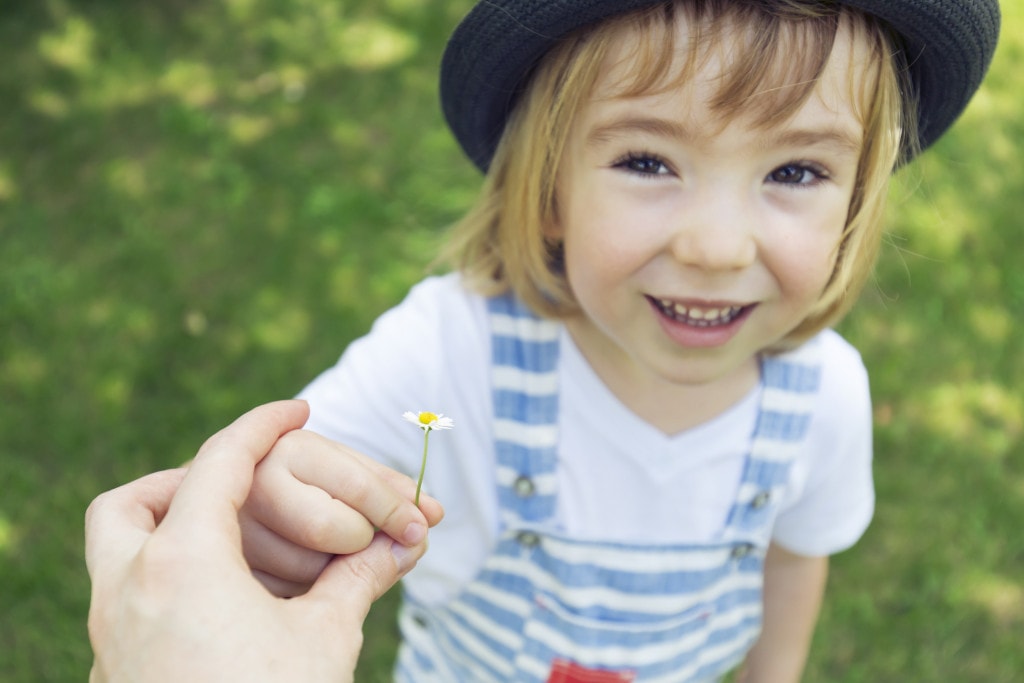Most things in life go out of style. But there is a short list of things that never will. And children with good manners will always remain at the top of that list because good manners make a child stand out in every interaction they have — whether with strangers, family, or even their peers.1 And if you think about it, you can probably name the children you know that have excellent manners and those who do not. This is because well-mannered or poor-mannered children both leave a lasting impression. But only one type leaves the impression that a parent can be proud of.
Good manners are not learned overnight. They take practice, commitment, and modeling. But the hard work always pays off. So here are five simple manners to teach your kids who are old enough to speak.
How to Teach Your Child Important Manners
Saying please, and thank you.
The most basic form of manners begins with please and thank you. This can be taught from a young age and can most appropriately be encouraged when a child asks for or receives something. The easiest way to encourage these manners in a young child’s vocabulary is to model them as they ask for things. If they say, “Mommy, I want juice,” you would answer, “Mommy, may I please have juice?” And then have them repeat it. The more you say this in interactions, the easier it becomes for them to use without reminders.
Teaching thank you is very similar. You teach your child to say this every time someone does something for them. If you hand them their juice, you can model what they need to say: “Thank you, Mommy, for the juice.” Then once again, have them repeat it back to you.
As they get older, a great way to encourage them is to say, “Today, I will count how many thank yous and pleases I can hear.” You will likely be surprised how many they can fit into the conversation. It is also a great reminder to adults that they are far more capable of manners than we realize.
Acknowledging an elder with respect.
One of the most impressive forms of manners a child can possess is showing their elders proper respect when they ask for something from them. I grew up in Kansas, and we were not taught the terms “Yes, sir” or “No, ma’am.” I thought they always seemed a bit too formal. So we taught our sons to say, “Yes, Daddy.” Or “No, Mommy.”
But then we moved to Texas, and everyone spoke with “Yes, sir” and “No, ma’am.” And suddenly, I began to see the value in teaching these words too. Because it instantly shows acknowledgment and respect from the child to the adult. And to me, that is the key manner that comes from this skill.
So whether you are a fan of sir and ma’am or Mommy or Daddy, I think what matters most is finding a way that your child knows how to acknowledge an adult who is asking something of them, with respect.
Looking adults in the eye.
Teaching this skill doesn’t always make the typical manners list, but it can be one of the best manners a child can learn. Because in a world of smartphones and texts that keep children looking down, teaching a child to look at the person talking to them is wildly important. And the easiest way to do this is to encourage your child to stop what they are doing and look at you when you say something. Your manner doesn’t have to be harsh or rude; it can be gentle as you teach. Simply say, “I want to see your eyes when you talk to me.” Or “When you look at me, it’s your way of showing me you are listening. So I always need to see your eyes looking at me when I’m talking to you.” Then have them practice doing this.
Cleaning up after yourself.
This is a trait that stands out to others wherever a child goes. And it is simply teaching your child to leave a place better than they found it. So often, kids are prone to leave a tornado of food and drink and toys wherever they go. But even at a young age, a child can quickly learn to take their dish and cup to the sink once they are finished. As parents, we often get used to doing so much for them, and we forget how capable they are of doing for themselves.
Regarding cleaning up toys, I think it’s important for kids to pick up their first mess before moving on to their next mess. And it’s important kids are taught to pick up at other people’s houses too. You can even let other parents know that you would like them to help clean up before leaving.
Teaching the why behind this skill can help in encouraging cleaning. One easy explanation is telling your child that the child who picks up after themselves gets to play with more toys than the child who does not clean up after themselves at all. Likewise, a child who cleans up at someone’s house is a child who gets invited back to play again. This can make the importance of this skill stick.
Saying excuse me.
Saying excuse me when walking around people is so simple yet crucial in being self-aware and respectful to others. Often children are in their own world and don’t understand that it is rude to bump or push. So teaching the words “excuse me” as they walk near friends is important.
In addition to this skill, teaching children there is a side of the sidewalk to stay on can help them stay out of everyone’s way while riding bikes, walking, or playing at a park. Often kids walk where they want and bump into someone but don’t know what to say when it’s an accident. “Excuse me” becomes natural when we encourage it at home too.
I hope this list can encourage you to parent your kids with manners that stand out for being polite in a world with many kids who have forgotten their importance!





























